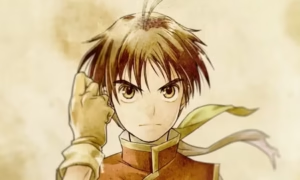Pride is the ultimate downfall of Elden Ring
“My name’s Malenia, Blade from Miquella and I have never experienced defeat.” This may be the line that I heard most often in Elden Ring.
FromSoftware’s most difficult boss spoke it, and it is an arrogant boast made by a proud warrior. Melania is not the only proud demigod. The Lands Between is filled with beings who believe they can control the world and take power. This attitude has caused much of the suffering that players experience. FromSoftware has been using this theme in their games since Demon’s Souls 2009. Soulsborne games are full of pride and arrogance. Players must learn this lesson if they want to win.
Elden Ring clarifies through its world-building and lore, from the demigods that the player encounters to the characters they meet as allies, even if only temporarily. Elden Ring has complex lore, just like its predecessors. However, each god is driven only by their pride. One of the final story bosses in the game is the only one that treats the player’s character like an equal. This is a sign that the player has achieved their highest status.
These arrogant characters are proud to be leaders, but their arrogance is their downfall. Seluvis’s quest to transform various characters into puppets is the only value he sees. But he has to face his limitations to succeed. As a player’s main source of information and encouragement, Sir Gideon Ofnir, the All-Knowing, is also present. All of his knowledge leads him to believe he is the only one who knows the will and best interests of the Lands Between. Some characters are unable to see their arrogance. Morgoth, the demigod, decries his relatives as “willful treasoners” and calls himself the last King. He refuses to believe that he could be wrong about the future.
This would all be good storytelling since both the narrative and the worlds that players explore show the direct consequences of pride. Every abandoned fortress or city that has fallen is a warning sign of what is coming. FromSoftware’s gameplay is also based on this philosophy. The series’ initial marketing-focused too much on its difficulty as a selling point. For example, the PC version of Dark Souls was infamously called the “Prepare to Die Edition,” but the actual challenge is secondary to what these games are all about. FromSoftware asked players from the beginning to let go of their preconceived notions and to be open to learning what Soulsborne games were trying to teach.
An arrogant new player may assume that they know Elden Ring and can hack-and-slash their ways through it, just like other action games. They think they know what to do. They assume that the first section will be easy, as enemies are just foddered for experience points and won’t throw unexpected traps. However, this knowledge quickly goes out the window. The beginning enemies can decimate players and will not hesitate to hide behind doors or set traps to ambush the uninitiated. Players will continue to suffer if they keep throwing themselves at their enemies, just like other games. Progress can be made if players put aside their pride and engage slowly and carefully as FromSoftware intended.
Every FromSoftware game opens this lesson, from the Forest of Fallen Giants Dark Souls 2 to Central Yharnam Bloodborne. It was something I had to learn myself as I bounced between Demon Souls and Dark Souls the first time I played. My frustration grew when I realized that I could not defeat enemies using flailing attacks. This prevented me from properly engaging in the mechanics and slowing down.
You may also like:
- Elden Ring, the Accessible Souls Game for the Physically Disabled, is
- Elden Ring: The Best Stories are the Stories You Create Yourself
- Elden Ring is Simply a Masterpiece
FromSoftware has been weaving these lessons into its titles since the inception of the Soulsborne franchise. Demon’s Souls’ final boss, King Allant, is motivated by the desire to expand his control over Boletaria beyond his natural reign. He makes a deal to release the Soul Arts and Deep Fog, which has led to the destruction of the worlds by the devil (or the Old One in this instance). The Healing Church, the largest institution in Bloodborne, also controls the blood supply for healing arts and rituals in Yharnam. However, it hides that these rituals have created monsters to maintain control of the city. In Dark Souls 3, Sulyvahn lies to claim the title Pontiff of all religions, bringing Lordran closer to his final death. These lessons are not only embedded in Elden Ring, but it is also a result of years of FromSoftware refinement…







